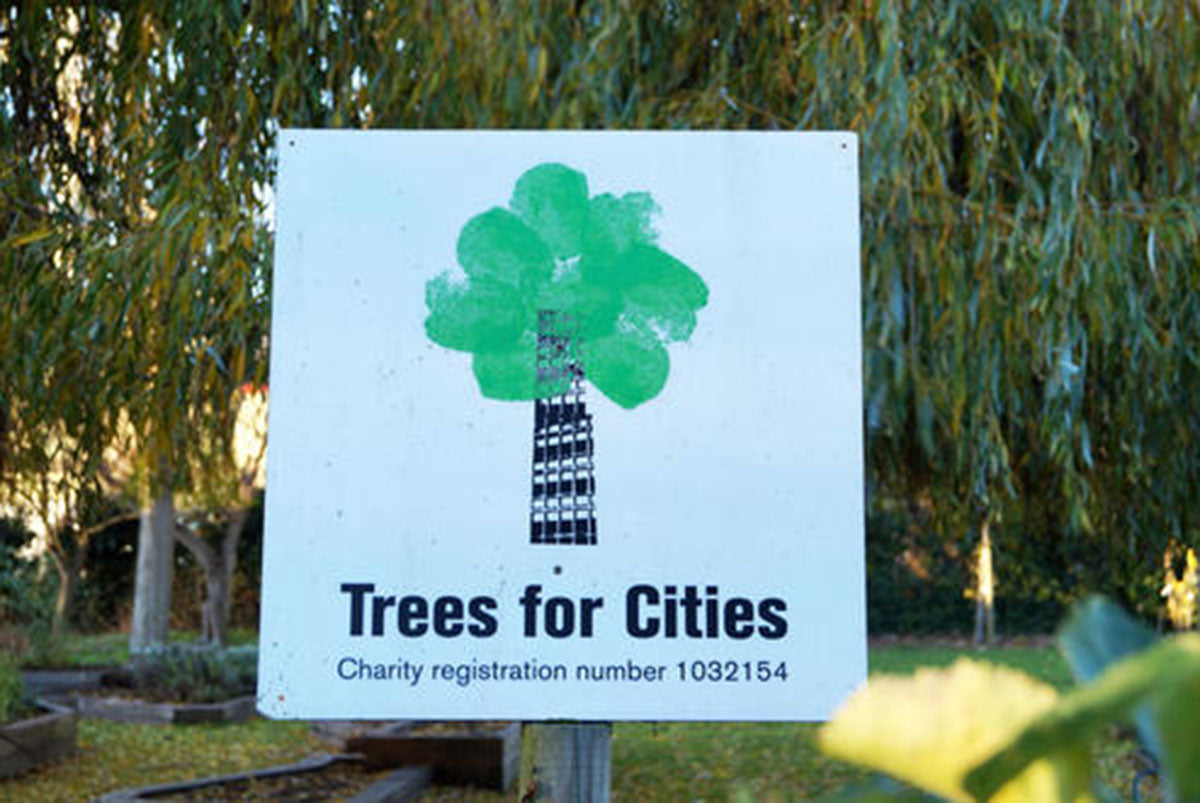
Catching up with Trees for Cities reveals urban jungles that flourish. Volunteers plant seeds of hope and connection in concrete communities.
Earlier in the year we supported Trees for Cities with a grant to buy trees for an urban tree planting project in Bradford, West Yorkshire
Working with local volunteers and community groups, the organisation planned to create a wet woodland consisting of 500 Alder and Willow whips to increase biodiversity and bring benefits to the local community. We caught up with Project Manager, Kathy, to find out how they got on.
Studies show that green spaces improve both physical and mental well-being; nonetheless, Trees for Cities often struggle to find funding for urban tree planting. Trees are believed to enhance mood, improve self-esteem, and lower blood pressure; yet, once widespread wet woodland is now under serious threat as a result of land and drainage development. Since 1993, the charity has been working on an international scale to create greener cities, revitalising areas and improving the lives of the people who live in them.

How could these lovely leafy fellows not raise your spirits and lower your blood pressure? Photo: Trees for Cities
With funding from donors such as the The Alpkit Foundation, Trees for Cities succeeded in developing the Burgess Playing Fields in Keighley, Bradford as part of a project that has already brought the local community together in one of the most deprived areas of West Yorkshire , as Kathy explains:
Local volunteers, Friends of Burgess Playing Fields, and the Forest of Bradford community group were all engaged in the tree planting. Each volunteer was shown how to carefully plant the trees, and we informed participants about the importance of trees in our urban environment".
Not everyone was able to take part in the tree planting: although local primary school students weren't available to participate in the planting of the trees, they will be playing an active role in maintaining the trees in the future, providing an excellent opportunity for the young students to learn about nature, biodiversity, and environmental issues.
Thet may not look like much, but these whips are already making a huge difference to the local area | Photo: Trees for Cities
Not only will the new wet woodland boost community togetherness, but it will bring a wide range of long-lasting benefits to the area too. Kathy elaborates:
Broader, long-term benefits to the wider community include a range of environmental, health, well-being and educational benefits such as increased greenery and shading, improved drainage, and increased enjoyment of natural space. Locals will also benefit from increased biodiversity, mitigation of pollution, enhanced use of natural space by the public, and greater resilience of the urban forest to the effects of climate change.
Wet woodlands provide an important home for numerous different species and are rich in insects, particularly beetles, many of which are now rare in the UK. Trees for Cities coordinates tree planting projects in urban areas throughout the country, to get involved of find out what they're up to, visit their website or follow them on Twitter.
The Alpkit Foundation supports projects that enable people to overcome the obstacles preventing them from Going Nice Places and Doing Good Things.
